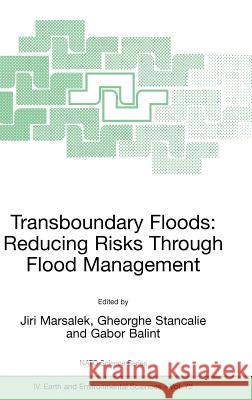Transboundary Floods: Reducing Risks Through Flood Management » książka
Transboundary Floods: Reducing Risks Through Flood Management
ISBN-13: 9781402049002 / Angielski / Twarda / 2006 / 332 str.
Transboundary Floods: Reducing Risks Through Flood Management
ISBN-13: 9781402049002 / Angielski / Twarda / 2006 / 332 str.
(netto: 1150,16 VAT: 5%)
Najniższa cena z 30 dni: 1156,64
ok. 16-18 dni roboczych.
Darmowa dostawa!
Flood damages are increasing as a result of frequent occurrence of large floods in many parts of the world, existing and continuing encroachment of development onto flood plains and aging flood protection structures. Under such circumstances, there is an ongoing search for better ways of protecting human life, land, property and the environment by improved flood management. Many flood management measures have been practiced in various jurisdictions, including living with floods, non-structural measures (e.g., regulations, flood defence by flood forecasting and warning, evacuations, and flood insurance), and structural measures (e.g., land drainage modifications, reservoirs, dykes and polders). Such flood management is difficult in river basins controlled by a single authority, and becomes even more challenging when dealing with transboundary floods, which may originate in one country or jurisdiction and then propagate downstream to another country, or jurisdiction. Under such circumstances, the demands on communications, information and data sharing, compatibility of forecasting methodologies, and close collaboration in all aspects of flood management are particularly strong and important. These issues are addressed in the edited proceedings of this NATO Advanced Research Workshop.











